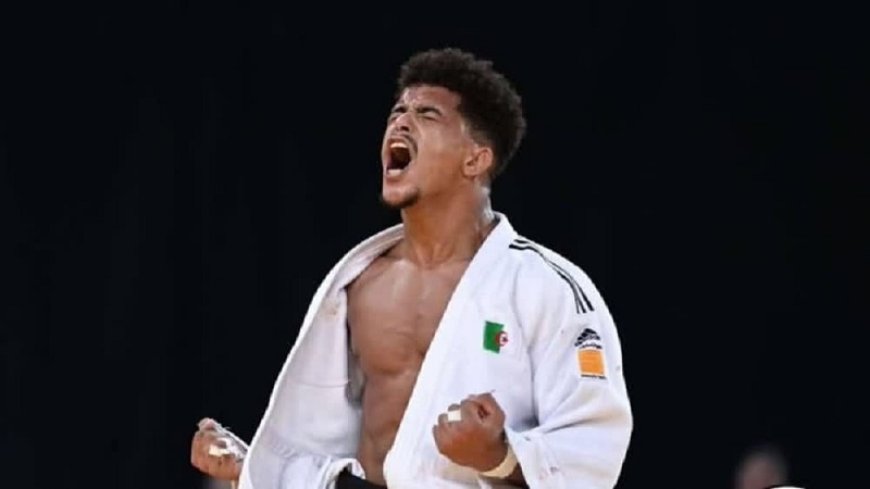Algerian Judoka Refuses to Compete Against Israeli Athlete at Paris 2024 Olympics
An Algerian judoka has refused to compete with a representative of the illegal Israeli regime at the Paris 2024 Olympic Games.

In a significant political statement at the Paris 2024 Olympic Games, Algerian judoka Messaoud Redouane Dris has refused to compete against Israeli representative Tohar Butbul. Dris made this decision to demonstrate his solidarity with the Palestinian people and protest what he describes as the ongoing genocide in the Gaza Strip.
Dris, who was scheduled to face Butbul in the sixteenth round of the 73 kg weight category, intentionally did not reduce his weight to avoid the match. His actions echo a similar stance taken by fellow Algerian judoka Fethi Nourine, who withdrew from a match against Butbul at the Tokyo Olympics in 2021. Nourine cited his political support for the Palestinian liberation struggle as the reason for his withdrawal, a move that resulted in a 10-year ban from the sport by the International Judo Federation.
Widespread Protests and Calls for Action
Dris's refusal to compete has added fuel to ongoing protests in Paris, where thousands have been demanding that Israel be banned from participating in the Olympic Games due to its actions in Gaza. Demonstrators argue that allowing Israeli athletes to compete normalizes what they see as war crimes and human rights abuses against Palestinians.
The protests in Paris are part of a broader international movement calling for increased scrutiny and accountability regarding Israel's policies and actions in the Palestinian territories. Activists have been urging the International Olympic Committee (IOC) to take a stand on human rights issues and reconsider Israel's participation in the Games.
International Reactions
The decision by Dris has drawn varied reactions globally. Supporters of the Palestinian cause have praised his stance as a courageous act of solidarity. They argue that sports should not be isolated from politics and human rights issues, and that athletes have a platform to raise awareness about injustices.
Conversely, critics argue that the Olympics should be a venue for sportsmanship and unity, free from political disputes. They contend that refusing to compete against an opponent based on their nationality undermines the spirit of the Games and sets a dangerous precedent.
Background on the Israeli-Palestinian Conflict in Sports
The Israeli-Palestinian conflict has frequently intersected with international sports, often leading to political statements and boycotts. Instances like the refusals by Dris and Nourine highlight the ongoing tensions and the ways in which athletes from conflict-affected regions navigate their political beliefs and professional careers.
Israel's presence in international sports events continues to be a contentious issue, particularly in the Middle East and North Africa. The country's athletes often face boycotts and refusals to compete from opponents in these regions, reflecting the broader geopolitical conflicts.
Looking Ahead
As the Paris 2024 Olympics proceed, the decision by Messaoud Redouane Dris and the resulting protests will likely continue to spark debate about the role of politics in sports. The international community will be watching to see how the IOC responds to these developments and whether similar actions will occur in other sports and competitions.
Dris's stance serves as a reminder of the powerful platform that athletes hold and the ongoing impact of the Israeli-Palestinian conflict on global events. The broader implications for international sports and political activism will be a key area of focus in the coming months.













































